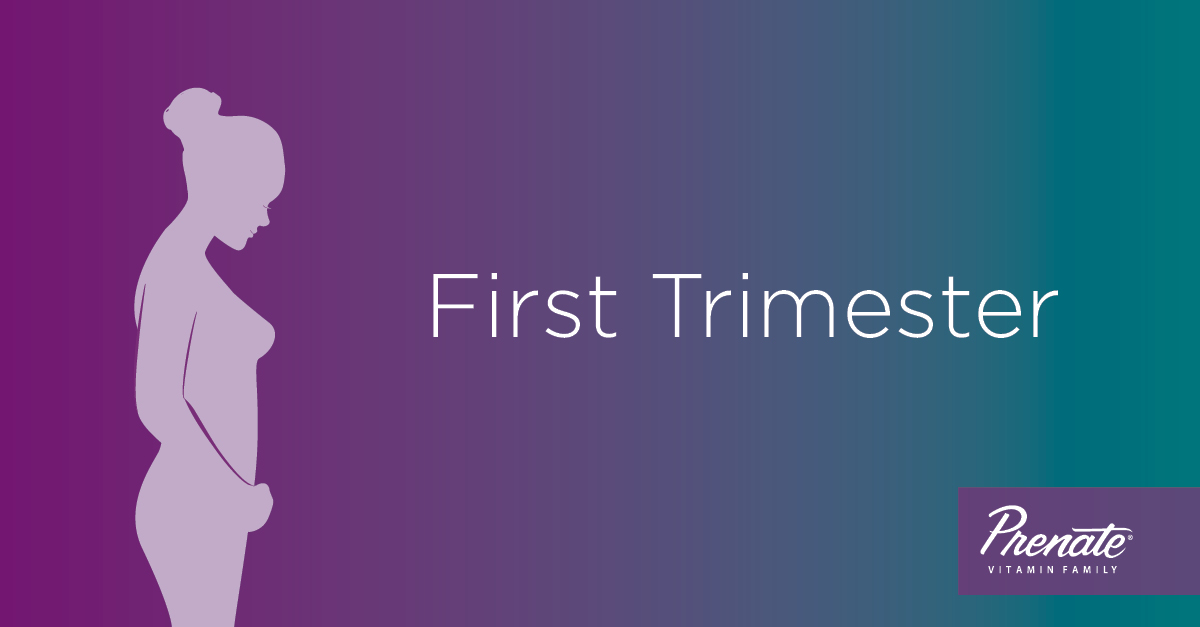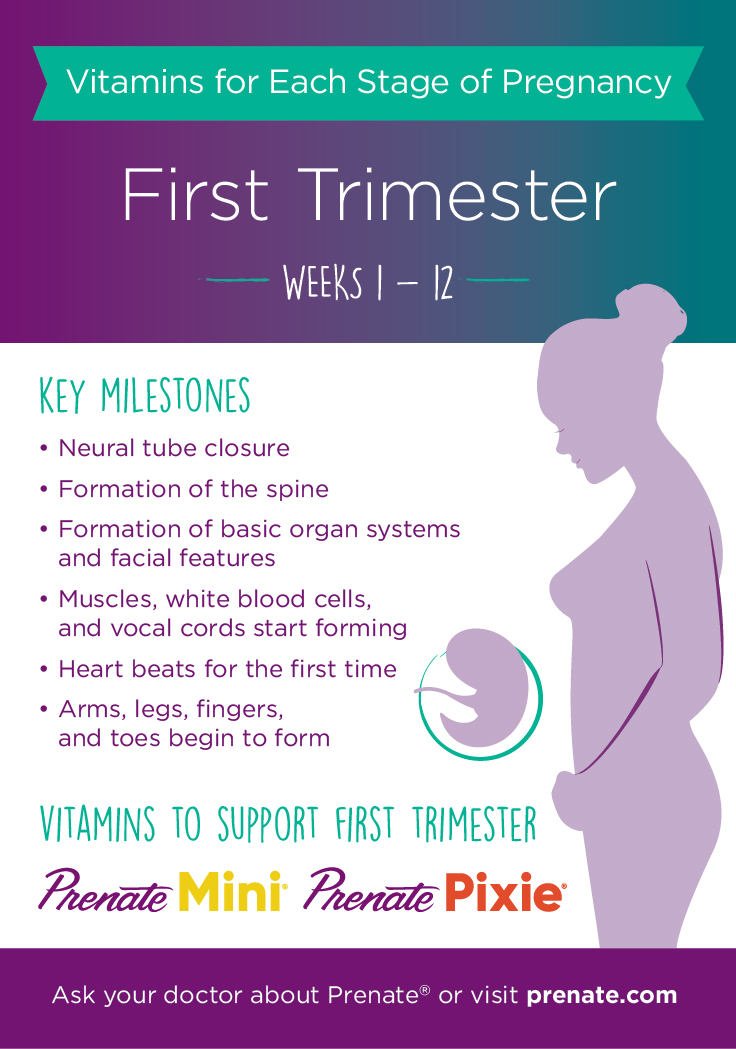Prenatal Vitamins for Each Stage of Pregnancy: First Trimester – Months 1 to 3
September 5, 2017
The first trimester is an exciting – but sometimes scary – part of pregnancy. This is when many women start experiencing pregnancy symptoms. The first trimester also comes with the many emotions that arise with pregnancy: excitement, hopefulness, worry, and anxiety. For the baby, a mother’s first trimester brings rapid cell division, including the formation of what will become the baby’s internal organs and central nervous system. Perhaps the most critical time of pregnancy, the first trimester, requires essential nutrients to support the baby’s development.
Key Developmental Milestones in the First Trimester:
- Neural tube closure
- Formation of the spine
- Formation of the basic organ systems and facial features
- Formation of the muscles, white blood cells, and vocal cords
- First heart beat
- Formation of the arms, legs, fingers, and toes
Prenatal Vitamins for the First Trimester
While a balanced diet is preferred, some women may have trouble meeting their daily recommended intake for specific vitamins and minerals. The Prenate® Vitamin Family offers a line of prenatal vitamins that are designed to carry moms and their babies through preconception to pregnancy and into the weeks and months after delivery.
These vitamins are specifically formulated to fit first-trimester needs:
- Prenate Pixie® is our smallest softgel prenatal vitamin. It can be taken before conception and is mighty enough to support moms and babies through pregnancy.
- Prenate Mini® is a small but robust softgel prenatal supplement with 14 nutrient forms.
These two prenatal vitamins contain key nutrients to help support first trimester developmental milestones:
- Folic Acid – The U.S. Food and Drug Administration recommends that pregnant women consume 800 mcg of folate daily during pregnancy.1 The development and closure of a baby’s neural tube (which eventually becomes the spine) occurs between day 14 and day 28 of pregnancy. Folic acid levels impact neural tube closure and because this development occurs so early in pregnancy, moms-to-be must be sure they are consuming adequate amounts of folic acid.
- Iron – The U.S. Food and Drug Administration recommends that pregnant women get 18 mg of iron daily.1 Sufficient iron helps a growing baby receive the amount of oxygen needed to develop a strong heart and lungs, and muscles. Iron also helps keep the mother’s muscles, heart, lungs, and other organs functioning healthfully while boosting her energy.
- DHA – The National Institutes of Health recommend 300 mg of DHA during the first trimester of pregnancy.6 DHA is essential for growth and functional development of an infant’s brain.7 During pregnancy, DHA also helps with the baby’s length of gestation and birth weight.8,9
- Vitamin B6 – The U.S. Food and Drug Administration recommends that pregnant women consume 2.5 mg of vitamin B6 daily during pregnancy.1,2 It is estimated that nearly 85 percent of pregnant women suffer from common morning sickness, which is most prevalent during the first trimester.3 The American Congress of Obstetricians and Gynecologists recommends vitamin B6 to help ease nausea, one of the symptoms associated with common morning sickness.4,5
Talk to your Health Care Provider About Prenatal Vitamins
These essential nutrients should be included in every prenatal diet during the first trimester. The Prenate® Vitamin Family helps support expecting moms with robust doses of key nutrients. Talk to your doctor to see if a Prenate® prenatal vitamin may be right for you to help fill nutritional gaps.
You Are About To Leave This Website
By clicking continue, this link will take you to a website to which Alora Pharmaceuticals Policies & Terms of Use do not apply. Alora and its subsidiaries do not control the content or accuracy of third-party websites and assume no responsibility for their use.












